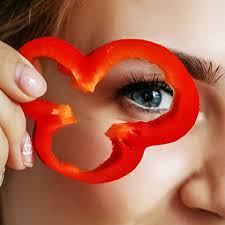When it comes to maintaining a healthy lifestyle, we often consider how our diet affects our digestive and cardiovascular health. But how often do we consider the effect our diet and eating habits have on our eyesight? It is important to note that our eyes are connected to the other organs of our body and keeping them in good shape forms an integral part of our overall preventive healthcare.
The link between diet and eye health
Did you know that the health of our vision is greatly influenced by our eye pressure? When our eye pressure is high, we can possibly be at a higher risk of developing glaucoma. Glaucoma is among the leading causes of blindness in the world. It is a condition involving damage to the optic nerve, and a buildup of eye pressure may increase your risk of experiencing uncomfortable glaucoma symptoms. However, the good news is keeping our eye pressure at a healthy level isn’t as hard as you may think. It can simply involve being more mindful of our diet, cultivating healthier eating habits and taking in foods in the right quantities.
Foods to approach
Fill up your plates with leafy greens such as cabbage, celery, spinach and kale! According to a Glaucoma specialist, these foods contain high levels of carotenoids which offer great benefits for our visual health and they are proven to reduce eye pressure [1]. In addition, foods like carrots, which are high in vitamin A and vitamin C are also great for the eyes and can help reduce eye pressure. It has been shown that increased consumption of fruits and vegatives in general will help decrease the risk of glaucoma as they help to lower our overall eye pressure.
Foods to avoid
Apart from taking in more nutritious and whole foods, it is important to also steer clear of food which are high in trans fat. These are foods like your baked cookies, cakes, or fried fritters. Additionally, it would be good to watch your caffeine intake as well. One cup of coffee a day is unlikely to cause any harm but excessive caffeine intake can cause several point rises in eye pressure that last for at least 90 minutes, which can put you at risk of optic nerve damage.
When it comes to fluid intake, it is good practice to spread it out throughout the day. Drinking by sips instead of gulping down large quantities of liquid at once can prevent the buildup of eye pressure.
In addition to following a healthy diet, make sure you are regular with your eye examinations, as glaucoma symptoms are not easily detectable, and can give many people the illusion that they don’t have this disease. Regular eye exams increase your odds of early diagnosis of glaucoma and any other eye diseases and thus preventing vision loss. There is still much to be learned about the relationship between diet and eye pressure. While there is insufficient evidence to conclude that specific foods lower eye pressure, paying attention to our overall diet consumption will play a part in keeping our eyes healthy.














